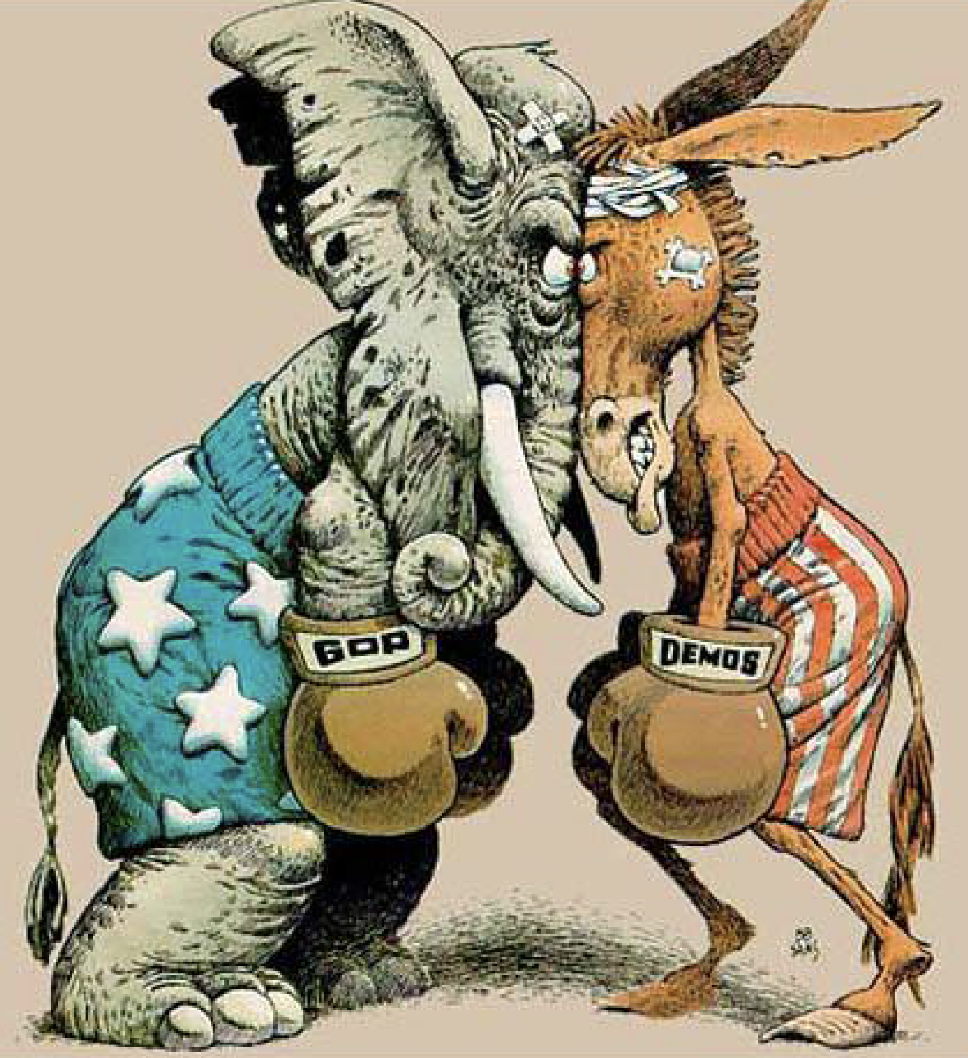Why has it been so hard for Republicans to unify around a speaker?
R: It has been so hard for Republicans to unify around a speaker because the party is completely divided at the moment. It is no surprise to anyone that there is a rift between the more establishment types and their Trumpian counterparts. The Republican party has become too focused on engaging in a civil war within its own ranks. This has to stop if the party is going to be serious about winning and governing in the future. The Republican party needs to stop acting like petty children and start taking the jobs they were elected to do seriously.
L: The Republican party has had a hard time unifying around a candidate for Speaker of the House because they’re too focused on extreme policy positions and backstabbing each other just for the slightest chance to be Speaker. The circular firing squad they have created has done nothing but expose the extremity and chaos found in the Republican caucus. Their continued denial that the 2020 presidential election was free and fair is concerning, and a losing position with a large majority of Americans. With a looming lapse in government funding in just a few weeks, the Republican majority wasted precious time to deal with this destabilizing change of Speaker and settled on the most extreme option: Mike Johnson. Speaker Johnson has quietly taken the most extreme position on many issues in the past. If the intensity of his beliefs is any indication of where the Republicans will seek their next legislative priorities, all Americans should be concerned.
Would any 21st-century politicians who did not get their party’s nomination have made a great president?
L: Howard Dean, a candidate for the Democratic nomination in 2004, would have been a great president. His grassroots outreach and fundraising organization, as well as his reliance on the internet would eventually become pivotal factors to the success seen by the Barack Obama campaign in 2008. After Dean’s campaign, he became the DNC chair and pursued a fifty-state strategy, which allowed Democrats to win big in the 2006 and 2008 elections. Policywise, Dean was and remains a standard Democrat. Dean’s personality was also unique in that he was not as polished as the average politician.
R: I think the best candidates for president that did not get their party’s nominations in the 21st-century would have been Congressman Ron Paul on the Republican side and Senator Jim Webb on the Democratic side. Paul would have been a good nominee because despite his ardent libertarianism, he was one of the few Republicans who opposed needless intervention in the Middle East and had any independence from the Bush Administration. Webb would have been a good president because he was an outsider. Webb spent several years as a Marine and served in the Reagan Administration as a Republican. He later changed his affiliation to Democrat and was elected to serve a term as a Senator from Virginia during the 2006 Democratic landslide. These are two candidates of outstanding moral quality, who have shown their abilities to lead time and time again, while also showing independence of their parties, something people today have much trouble doing.
What is your favorite political movie/TV show?
R: My favorite political movie is Cromwell (1970). This movie features Richard Harris as Oliver Cromwell and Alec Guinness as King Charles I. The movie focuses on the English Civil War in the 1640s and the political consequences that immediately followed the end of the war. However, my favorite part of the movie is not some arcane battle scene or something of an uproarious nature, but rather the courtroom scene, where the king is tried before Cromwell’s selected committee. This scene explains one of the most important things in politics; the difference between power and authority. King Charles I asks Cromwell where his authority is to investigate the crown, to which Cromwell responds that his authority comes from parliament. The king points out that this committee is not parliament (which consists of the Commons and Lords), but rather a self devised group bent on executing the king. This lesson rings true in our politics today. While the government may have the power to make us do something, they do not always have the authority, which comes from something higher than humans. God.
L: My two favorite political TV shows are Parks and Rec and Veep. While they are political satire and meant to be taken with a grain of salt, the themes of the shows– campaigning, electoral success and loss, the creation of rules, regulations, and laws, consequences of political and electoral decisions, and the role of the media– in both shows functions as a segue to the actual political process in, at times, a hilarious way.
If you were to ask a LHRJ question of one another, what would it be?
L: I would ask: what is one policy or area where you break with your party?
R: What do you think is the biggest flaw in your political party at the moment?


